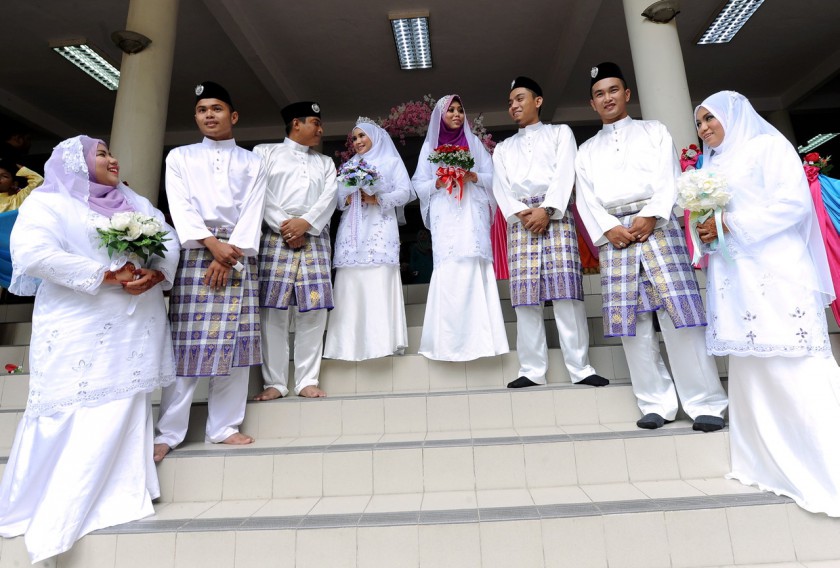KUALA LUMPUR, Oct 15 — Seven in 10 Muslim women here agree that polygamy is a right accorded to Muslim men, a survey by rights group Sisters in Islam (SIS) on Muslim women’s realities in Malaysia published today found.
However, only nearly one-third of respondents said they would allow their husbands to marry another woman while they are still together.
“An overwhelming 70 per cent of the respondents accept that a husband has the right to practise polygamy if he can treat all the wives fairly.
“However, only 32 per cent among them would allow their husbands to take another wife,” said the report titled “Perception and Realities: The Public and Personal Rights of Muslim Women in Malaysia”.
In addition, two-thirds of respondents felt that it is fine for a wife to demand divorce if her husband decides to marry another wife.
Women polled in the East Coast states of Kelantan, Terengganu and Pahang had the highest proportion of agreeing with polygamy at 79 per cent, compared to the South (69 per cent), North (66 per cent), Central (65 per cent), and East Malaysia (67 per cent).
East Coast women were also those agreed the most that polygamy is still relevant and could be accepted today at 70 per cent, compared to the South (65 per cent), North (51 per cent), Central (54 per cent), and East Malaysia (50 per cent).
The rights of the current wife have been increasingly chiselled away over the years with legal amendments in 1994 and 2005 made to the Islamic Family Law (Federal Territories) Act 1984.
The 1994 amendment allows for secret polygamous marriages, by permitting the registration of illegal marriages — that were entered into without the court’s permission — with the payment of a small fine.
Muslim men who wanted to marry an additional wife previously had to show the marriage was both “just and necessary”, but the 2005 amendment loosened it to either “just” or “necessary”, with the risk of adultery by the husband also accepted as a necessary condition.
A previous survey by SIS in collaboration with Universiti Kebangsaan Malaysia, Universiti Sains Malaysia and University of Malaya between 2007 and 2012 also showed that polygamy was often conducted in secret, without court approval and without the knowledge of the current wife—causing families often suffer financial setbacks and emotional trauma.
In March, SIS said the number of Muslims asking for free legal advice on polygamy is rising, with polygamy cases recorded at its Telenisa legal aid clinic rising from 75 in 2016 to 106 in 2017, and 176 in 2018.
According to Telenisa, cases of subsequent marriages that went unregistered in Malaysia amounted to 11.4 per cent of the 176 polygamy cases it handled in 2018, with affected wives losing their rights to the inheritance and matrimonial property while their children are regarded as illegitimate.
The survey was implemented by research firm Ipsos between 2018 and 2019 through two phases, with the quantitative phase involving 675 Muslim women across the country aged between 18 and 55.



















